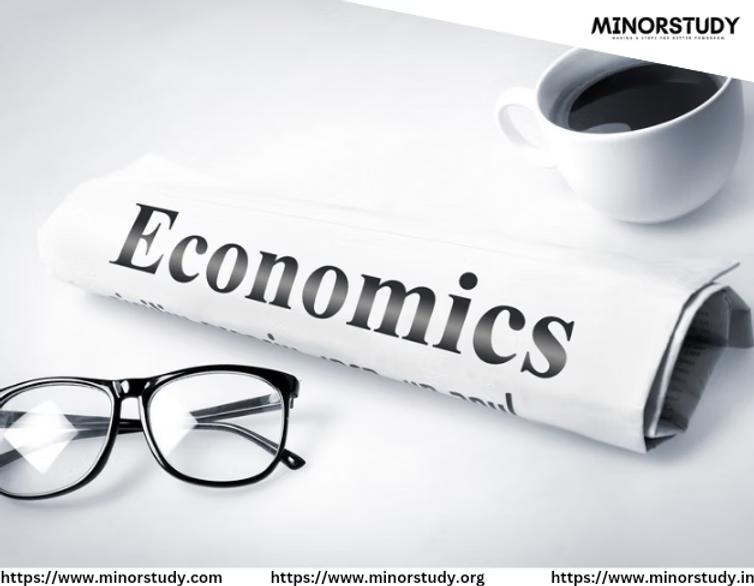Bachelor of Economics (BEcon): An Overview
A Bachelor of Economics (BEcon) is an undergraduate degree focused on understanding how economies function, analyzing economic policies, and applying theoretical and practical tools to solve real-world economic problems. It is a versatile program that prepares students for careers in finance, public policy, business, research, and more.
- Bachelor of Economics (BEcon): An Overview
- Key Features of a Bachelor of Economics Degree
- Core Subjects in the Curriculum
- Skills Gained
- Career Opportunities
- Further Studies
- Advantages of a Bachelor of Economics Degree
- Top Universities Offering Bachelor of Economics
- Is Bachelor of Economics Right for You?
- Conclusion
Key Features of a Bachelor of Economics Degree
Duration:
Typically 3 to 4 years, depending on the country and institution.
Field of Study:
The program focuses on economics, with options to specialize in areas like microeconomics, macroeconomics, international trade, and econometrics.
Interdisciplinary Approach:
Often incorporates elements of mathematics, statistics, finance, and political science to provide a well-rounded understanding of economic systems.
Specializations:
Students may choose to specialize in fields such as:
International Economics
Development Economics
Environmental Economics
Behavioral Economics
Financial Economics
Core Subjects in the Curriculum
Foundation Courses:
Introduction to Microeconomics
Introduction to Macroeconomics
Mathematical Economics
Statistics for Economists
Advanced Topics:
Econometrics
Public Finance
Game Theory
Labor Economics
International Trade and Finance
Monetary Economics
Elective Courses:
Environmental Policy
Economic Development
Health Economics
Political Economy
Capstone Projects or Research Papers:
Many programs require students to complete a research paper or project focusing on an economic issue.
Skills Gained
Analytical thinking and problem-solving
Quantitative and statistical analysis
Research and data interpretation
Understanding of global economic systems and policies
Strategic decision-making and financial planning
Career Opportunities
Graduates with a Bachelor of Economics have a wide range of career options, including:
Economic Analyst:
Working in think tanks, research institutions, or consulting firms.
Financial Analyst:
Analyzing market trends, investments, and financial data.
Policy Advisor:
Developing economic policies in government or non-governmental organizations (NGOs).
Data Scientist:
Applying econometric and statistical tools to analyze large datasets.
Market Research Analyst:
Assessing market trends and consumer behavior.
International Trade Specialist:
Working in multinational organizations, focusing on trade and global markets.
Academia and Research:
Pursuing further studies (e.g., master’s or PhD) to teach or conduct advanced research.
Further Studies
Many graduates choose to enhance their qualifications through advanced programs such as:
Master’s in Economics
Master of Business Administration (MBA)
PhD in Economics
Master’s in Data Analytics or Finance
Advantages of a Bachelor of Economics Degree
Versatile Career Path:
Prepares students for diverse fields, including finance, government, and academia.
High Demand:
Economists are essential in policymaking, business strategy, and market analysis.
Global Perspective:
Offers insights into global markets, trade, and international relations.
Problem-Solving Skills:
Equips graduates to address pressing global issues, such as poverty, inequality, and climate change.
Top Universities Offering Bachelor of Economics
Harvard University (USA)
London School of Economics and Political Science (UK)
University of Melbourne (Australia)
National University of Singapore (Singapore)
University of Toronto (Canada)
University of Tokyo (Japan)
Is Bachelor of Economics Right for You?
This degree is ideal for students who:
Have strong analytical and mathematical skills.
Are interested in understanding and solving economic issues.
Aspire to work in fields like finance, public policy, or international trade.
Conclusion
A Bachelor of Economics is a valuable degree for anyone seeking to understand the complexities of economic systems and develop skills that are in demand across industries. It provides a strong foundation for various career paths and further academic pursuits, making it a highly rewarding choice for students with an interest in economics and its real-world applications.








